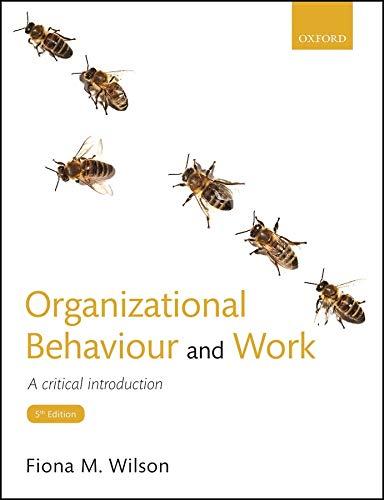We touched on the limits to the absorption of organizational culture in Chapter 11, but much more
Question:
We touched on the limits to the absorption of organizational culture in Chapter 11, but much more might be said. Van Maanen (1991) shows the limits to which overt company propaganda in the Disney organization can be effective. Satirical banter, mischievous winking, and playful exaggeration are to be found in the classroom with the new recruits. As one notes: ‘It is difficult to take seriously an organization that provides its retirees with “Golden Ears” instead of gold watches after 20 or more years of service’ (Van Maanen, 1991: 67). All of the newcomers are aware that the label ‘Disneyland’ has both an unserious and artificial connotation. A full embrace of the Disneyland role would be as deviant as its full rejection.
Sometimes, customers will overstep their role, insult an operator, challenge their authority, or disrupt the routines of the job. If a customer slights a ride operator, routine practices have been developed by the operators to deal with this. Common remedies include the following:
● During the ‘seatbelt squeeze’, the deviant customer’s seatbelt is adjusted to the extent that he or she is doubled over at the point of departure and left gasping.
● The ‘brake toss’ involves an operator jumping on the outside of a norm violator’s car, unhitching the safety belt, then slamming on the brakes, bringing the car to an almost instant stop while the driver flies over the bonnet.
● In the ‘seatbelt snap’, an offending customer receives a sharp quick snap of the hard plastic belt across the face or other part of the body while entering or exiting a seatbelted ride.
● The ‘break up the party’ gambit is a queuing device put into officious use to separate troublesome pairs into different units, thus forcing on them the pain of strange companions for the duration of a ride.
● Offensive guests can be drenched with water as part of the submarine ride.
All of these procedures, and more, are learned on the job and enliven conversation time at breaks or after work. Naturally, though, operators are aware of the limits and, if caught, they know that restoration of corporate pride will be swift.
Questions
1. Is this behaviour a sign of resistance to managerial control, demonstrating how ride operators are in control of their job and how it is managed?
2. Should it be regarded as misbehaviour?
3. Does it represent ways in which the operator copes with the difficult demands of the job—especially difficult customers?
Step by Step Answer:

Organizational Behaviour And Work A Critical Introduction
ISBN: 9780198777137
5th Edition
Authors: Fiona M. Wilson





